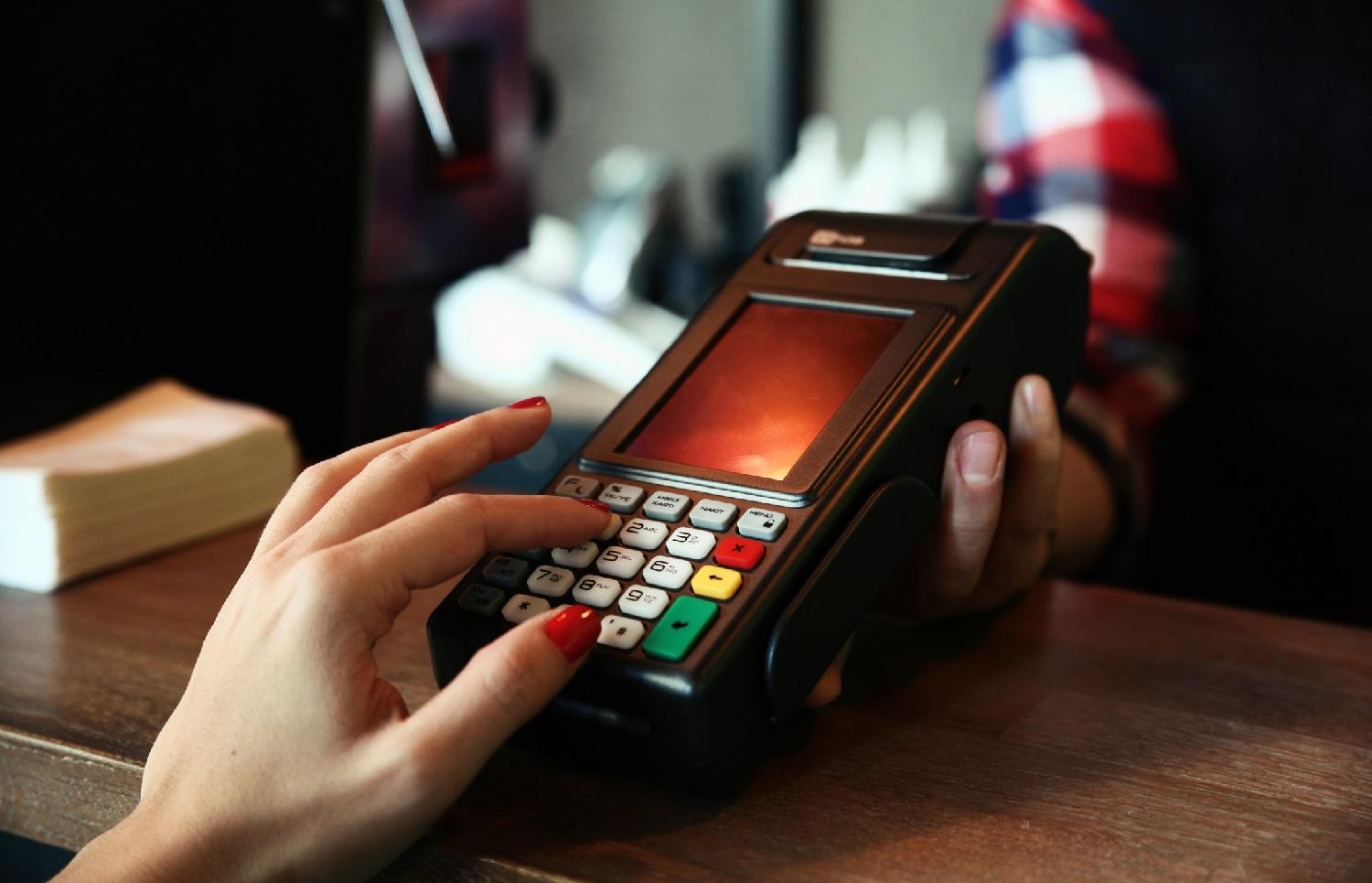MENU
Starting a Business
- Best Small Business Loans
- Best Business Internet Service
- Best Online Payroll Service
- Best Business Phone Systems
Our Top Picks
- OnPay Payroll Review
- ADP Payroll Review
- Ooma Office Review
- RingCentral Review
Our In-Depth Reviews
Finance
- Best Accounting Software
- Best Merchant Services Providers
- Best Credit Card Processors
- Best Mobile Credit Card Processors
Our Top Picks
- Clover Review
- Merchant One Review
- QuickBooks Online Review
- Xero Accounting Review
Our In-Depth Reviews
- Accounting
- Finances
- Financial Solutions
- Funding
Explore More
Human Resources
- Best Human Resources Outsourcing Services
- Best Time and Attendance Software
- Best PEO Services
- Best Business Employee Retirement Plans
Our Top Picks
- Bambee Review
- Rippling HR Software Review
- TriNet Review
- Gusto Payroll Review
Our In-Depth Reviews
- Employees
- HR Solutions
- Hiring
- Managing
Explore More
Marketing and Sales
- Best Text Message Marketing Services
- Best CRM Software
- Best Email Marketing Services
- Best Website Builders
Our Top Picks
- Textedly Review
- Salesforce Review
- EZ Texting Review
- Textline Review
Our In-Depth Reviews
Technology
- Best GPS Fleet Management Software
- Best POS Systems
- Best Employee Monitoring Software
- Best Document Management Software
Our Top Picks
- Verizon Connect Fleet GPS Review
- Zoom Review
- Samsara Review
- Zoho CRM Review
Our In-Depth Reviews
Business Basics
- 4 Simple Steps to Valuing Your Small Business
- How to Write a Business Growth Plan
- 12 Business Skills You Need to Master
- How to Start a One-Person Business
Our Top Picks
Table of Contents
After you establish your business, you may need to purchase supplies or inventory on credit. While you can use your personal credit card, having a credit card in your business’s name has distinct advantages. A business credit card can simplify accounting and give your business a more professional appearance. In the long run, it can help establish business credit, which you’ll need for financing your company’s future growth.
Several factors go into choosing and applying for a business credit card. We’ll outline what qualifications you need to apply for a business credit card and how to obtain one.
According to a Hello Alice survey, only 20 percent of small business owners have a business credit card. Many use their cards to replace or repair business assets or to grow their business.
How to apply for a business credit card
Several types of business credit cards are available. Some are reserved for large corporations with dozens or even hundreds of cardholders, employee expense reimbursement policies, and complex security needs. Others are geared toward small businesses with five or fewer employees.
With so many business credit cards available, there’s one for just about any type of business. However, you may encounter the following qualification restrictions from card issuers:
- Organization restrictions: Some card issuers will not issue business credit cards to nonprofits or unincorporated businesses like sole proprietorships.
- Industry: Some institutions will not extend credit to businesses that operate in specific industries, such as multilevel marketers and cannabis- or firearm-related businesses.
- Applicant qualifications: Every issuer has unique minimum qualifying criteria for card applicants, including income, time in business and credit score.
Unless you’re prohibited from getting a card due to these restrictions, getting a business credit card is often as easy as getting a personal card. Even if one issuer doesn’t give you a card, you may still be able to get a card from another company.
Getting a business credit card as a sole proprietor can be tricky but not impossible. Your approval chances, credit limit and interest rate are tied directly to your personal credit score.
What you need to apply for a business credit card
When you apply for a business credit card, you must provide the same information you’d submit when applying for a personal card. The application will include basic contact information like your name, mailing address, phone number and email. You must also provide several items specific to your business, including the following:
- Business name
- Business address
- Years in business
- Annual revenue
- Estimated monthly expenses using the card
You must also provide your tax identification number (TIN). If your business is incorporated, this may be your business’s EIN. If you’re a sole proprietor or a single-member LLC, this may be your Social Security number. You must also state your position at the company and list Social Security numbers for business partners who own over a certain percentage of the business (usually 20 percent or more).
Depending on the issuer, a card application may also ask about your business’s industry, its nature (whether it’s for-profit, for example), and the number of employees or additional cardholders.
How to apply for a business credit card
If you think you fit the criteria for a business credit card and would like to get one to support your operations, you can apply anytime. While an application is simple and only takes five to 10 minutes to complete, there are several things you should do first to ensure you get the right card for your company’s needs.
1. Research your business credit card options.
Dozens of business credit cards are available. Before you settle on a card, you should know your options. In addition to investigating your business credit card’s interest rates and any fees involved, consider the following:
- Consider a rewards card. Study your business expenses to see where you’re spending money. For example, if you spend a lot on business travel, a mileage rewards card would be ideal.
- Consider a card with a long introductory period. Some cards offer long 0 percent introductory periods. They’re excellent options if you’re starting a business or want to use a credit card to finance your startup.
- Consider cash-back programs. Some business credit cards have cash-back programs that offer excellent rewards for spending in specific categories. One of these might be ideal for your established business.
Be sure to check the qualification criteria for any business credit card you’re considering to ensure you qualify for the card you want.
2. Choose a business credit card.
Once you’ve identified cards with the right mix of fees, rates and rewards, it’s time to decide on your business credit card. Ensure you’ve read the documentation carefully and understand all cardholder rights and obligations. If the card offers a 0 percent introductory period, you need to know when it ends. If there are caps on rewards or limits on how rewards can be redeemed, you should be aware before applying.
3. Check your credit score.
If you’ve been in business for three or more years, you may qualify for a business credit card using your business credit score. In most cases, though, you’ll be applying with your Social Security number, and issuers will check your personal credit score.
In either case, it’s usually a good idea to check these scores before applying to ensure they’re in good shape. The higher your scores, the better. If your personal credit score isn’t at least 650, you may want to consider holding off on applying altogether. That will give you time to improve your credit score by paying down debt, bringing accounts current, or resolving past credit disputes.
If you’re applying for a business credit card with bad credit, consider opting for a secured card or find cards that are designed to establish and strengthen business credit.
4. Gather your business credit card application information.
If you’ve chosen a card and your credit is in good shape, it’s almost time to apply. Your last task is gathering the information you’ll need for your application:
- Your business’s TIN (found on IRS Form W-7 or SS-4)
- Your Social Security number
- Social Security numbers for business partners who own 20 percent or more of your company
- Your incorporation documents to confirm the number of years you’ve been in business
- Recent financials to check your revenue and monthly spend estimates
- A list of employees who will need cards
5. Apply for your business credit card.
With all the pertinent information at hand, it’s time to apply for your business credit card. This process is usually completed online and only takes a few minutes.
Depending on the data you enter, the card issuer may have additional questions for you or may require more information. You may be able to complete subsequent steps online, or you may need a separate follow-up via phone or email.
6. Await the card issuer’s decision.
After formally submitting your card application, wait and see if you’re approved. Approval decisions can take a few minutes or a day or two if additional follow-up is necessary. If approved, you’ll get your card (or cards) in the mail to activate and start using.
If you’re confused about whether you should use a business credit or debit card, consider your goals. If you want to build credit and need access to additional funds, a credit card is the way to go. If you prefer paying with cash, a debit card is the better choice.
Factors that impact business credit card approval
Although applying for a business credit card only takes a few minutes, credit card issuers gather a great deal of information about you and your business. A few factors that can make or break the approval decisions include the following:
- Your business type (some issuers don’t support nonprofits or sole proprietorships)
- Your revenue or revenue expectations
- Your time in business
- Your personal credit score
- The availability of personal guarantees from you and your business partners
- Your industry
This list isn’t comprehensive. Credit card applications can be denied for many reasons. Even having an unusual business address — one that isn’t easily found in a postal code lookup — can be a disqualifying factor.
However, credit scores are the most common disqualifying factor. Most small business owners apply for business credit cards using their personal credit, not business credit. Because of this, if a business owner’s credit report isn’t in good shape — with a score of at least 640 to 700, depending on the card they’re applying for — they may be denied.
To get the most out of your business credit card, set spending limits for all cardholders, deduct interest and annual fees from your business taxes, and use card statements to verify business expense deductions.
Impacts on personal credit
Business credit cards are tied to personal credit in several ways:
- Approval hinges on your personal credit. As mentioned, when you apply for a business credit card — especially a small business card — your application will likely hinge on your personal credit. This means that when you apply, the card issuer will run a hard check on your credit. This hard inquiry will count against your credit and take several months to drop off your credit report.
- Business balances may affect your personal credit. Additionally, if you’re approved, sometimes (depending on the issuer and card) balances you carry on your business credit may also appear on your personal credit report. This will further impact your credit if you apply for other business financing or even for a personal loan.
- Personal guarantees may be required. Applying for a business credit card usually requires a personal guarantee from anyone who owns 20 percent or more of the business and sometimes from each cardholder. If your business fails to make on-time payments or defaults on a balance, your personal credit score will be hurt.
When not to apply for a business credit card
Getting a business credit card can be a quick and easy way to access credit for your business. However, sometimes, it’s not your best option. Consider the following situations where you shouldn’t apply for a business credit card because you’re less likely to qualify:
- Your personal credit isn’t in good shape.
- You already have a lot of business debt outstanding.
- Your business is just getting started and doesn’t yet have reliable income.
Business credit cards aren’t always ideal business financing options. Applying for a business loan may be a better way to secure financing.
Business credit card FAQs
How do business credit cards work?
A business credit card is intended strictly for purchases related to an organization; it is not for personal use. Business credit cards have distinct differences from personal credit cards:
- Reporting differences. Business credit cards are monitored and reported differently from personal credit cards. Personal credit card accounts are reported monthly to the major consumer credit bureaus: Experian, Equifax and TransUnion. However, depending on the business credit card you have, the issuer may report to commercial and consumer credit bureaus.
- Spending limits. Business credit cards typically have higher spending limits because businesses often need big-ticket items.
- Bonus differences. Credit card bonuses on business credit cards are usually geared toward commercial use. Business credit cards often advertise bonuses like airline miles or travel discounts.
What are the benefits of business credit cards?
Business credit cards provide four primary benefits:
- Tax benefits. Business credit cards can be helpful for tax-deduction purposes. Credit card statements make it easy to track business expenditures.
- Credit score protection. Business credit cards help you keep your personal credit separate from your business credit. If your business credit score decreases, it should not adversely affect your consumer credit score and vice versa.
- Higher spending limits. Business credit card spending limits are usually higher than consumer credit card spending limits.
- Money management. Business credit cards help with money management. Cash flow is crucial for any business, but especially for startups. Business owners can better manage their cash flow using a business credit card to make and pay off expenses, such as new equipment and inventory.
How can you increase your business card’s credit limit?
If you pay your bill on time faithfully for at least six months, you can ask the card issuer to increase your credit limit. Your chances of getting a credit limit increase are better if you consistently pay more than your minimum payment or pay off the entire balance each month.
When choosing a business credit card, is the interest rate the most important factor?
If you will be carrying a balance from month to month, the interest rate is paramount. If you pay your balance off in full each month, the interest rate is not important. In that case, the fees and rewards are the most important factors to consider.
Should you use your business credit card for everyday purchases or for emergencies?
If you’ve had debt problems, reserving your card for emergencies is a good idea. However, if you’re confident you can use the card responsibly, you can enjoy its benefits. For example, using a credit card provides fraud protection. Some cards give you additional purchase protection, price protection, or warranties; others provide cash-back rewards.
When you want an employee to make credit card purchases, can you limit spending on their card?
Yes. Most business credit cards allow you to set spending limits on individual cards. For example, you could assign a limit of $350 monthly to your office manager for office supplies but have a limit of $5,000 monthly for salespeople to use for entertaining clients.
Are you ready to get a business credit card?
Applying for a business credit card is relatively quick and easy — it’s usually as simple as completing an application online. However, before you apply, ensure that a business credit card is the right financing option for your business. If so, research cards, pick the best one for you, gather your relevant info, and confirm that you’ll likely qualify based on your credit score before submitting an application.
That way, you can ensure that you’ll be approved — and thus not waste a hard inquiry on your credit — and that you’ll find the best card for your business.
Jennifer Dublino contributed to this article.





